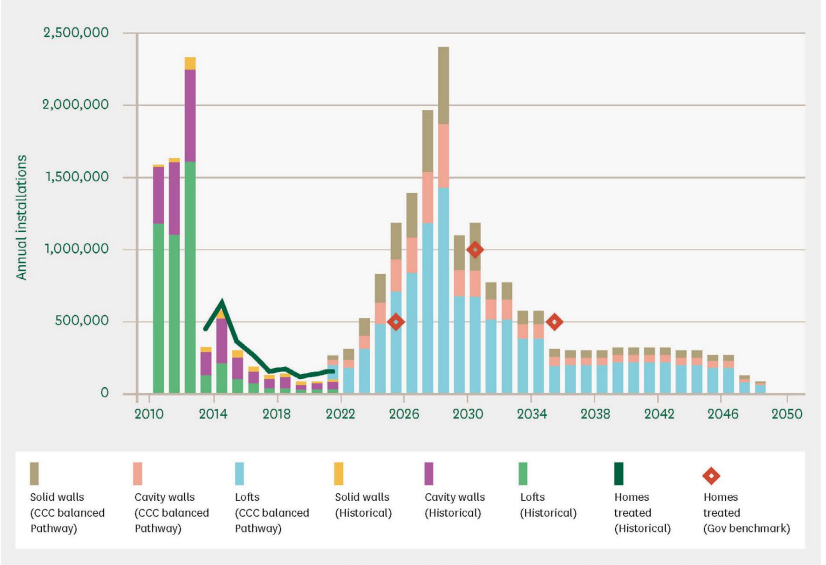Exclusive: BEIS chair slams Government over lack of insulation plans heading into winter

The Government has exacerbated the energy crisis by failing to ramp up the efficiency of British homes, argued the leader of an influential Westminster body.
Darren Jones, chair of the Business, Energy and Industrial Strategy (BEIS) committee, told City A.M. that Government inaction on insulation measures – such as loft insulation and double glazing – had left energy users exposed to ultra-high energy bills.
He believed energy efficiency measures had been neglected since the Conservative Party took office over a decade ago
He said: “The Government has made this winter much worse due to ministers’ failure to deliver a successful, national home insulation programme since 2010. Reducing the amount of heating needed to keep our homes warm is an obvious way to reduce energy bills. That’s why energy efficiency works are the permanent solution to reducing costs.”

The committee leader urged the Government to roll out a nationwide insulation plan to help tame soaring energy bills this winter, and help drive down energy bills for years to come.
He said: “Ministers must now come forward with a bold, fully funded, national home insulation programme before the end of the year as a long-term solution to this crisis.”
The UK has among the least energy efficient housing stock in Europe, with consultancy group Energy and Climate Intelligence Unit recently predicting that households with poor efficiency ratings will have to cough up nearly £1,000 more on their energy bills this year than other well-insulated homes.
Jones’ calls follow the latest forecasts that the energy price cap – which establishes the maximum charge for customers on standard variable tariffs – could more than double this winter, and peak at over £4,000 per year in the coldest months of the year when demand is at its highest.
The energy price cap is already at a record level of £1,971 per year.
Efficiency measures absent from crisis plans
Last month, the BEIS Committee published its report on energy pricing, where it criticised the Government’s approach to insulation as “stop-start” – with installations of efficiency measures across households declining over the past 12 years.
While former Chancellor Rishi Sunak unveiled a £15bn support package for households in May, he failed to include significant energy efficiency measures.
The Climate Change Committee recently calculated that UK consumers would have saved £1bn on their energy bills in 2022 if rates of home insulation had continued at 2012 levels, and if the zero-carbon homes standard had come into force in 2016 as originally intended.

The Government has recently unveiled £635m in funding to ramp up the energy efficiency of public buildings.
There have also been media reports – first covered in The Times – that Downing Street has been drawing up plans to insulate hundreds of thousands more homes before winter by diverting £1bn of existing policy funds to its Energy Company Obligation scheme.
The programme is currently funded through billpayers and insulates the homes of fuel poor, low income and vulnerable energy users.
In the run up to the 2019 election the Government pledged £9.2bn investment in energy efficiency, of which £1.4 billion has still not been allocated to any scheme.
When approached for comment, a Government spokesperson said: “We’re investing £6.6bn in total this Parliament to improve energy efficiency across the country, with the majority of our support targeting those on low income and vulnerable households. Huge progress has already been made, with the number of homes with an energy efficiency rating of C or above at 46 per cent and rising, up from just 14 per cent in 2010. This is benefiting tens of thousands of homes and delivering average savings of £300 a year on energy bills.”